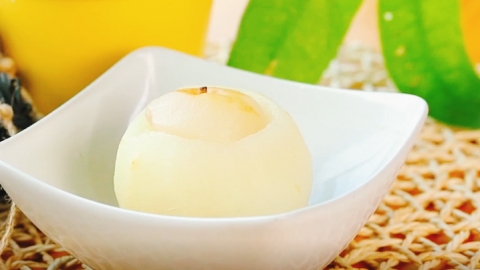What are the functions and benefits of pears?
Generally speaking, the main functions and benefits of pears include moistening the lungs and relieving cough, promoting saliva and quenching thirst, clearing heat and reducing internal fire, lubricating the intestines and relieving constipation, and supplementing nutrition. Detailed explanations are as follows:
1. Moistening the Lungs and Relieving Cough
Pears are sweet and cool in taste and rich in moisture, effectively nourishing lung yin. For symptoms such as dry cough with little phlegm, dry and itchy throat caused by lung dryness, moderate consumption can help soothe the lungs, alleviate coughing symptoms, maintain a moist condition in the lungs, and relieve discomfort caused by lung dryness.
2. Promoting Saliva and Quenching Thirst
Pears have juicy flesh containing natural sweet substances. Eating pears can stimulate saliva secretion, quickly relieving dry mouth and thirst caused by dry weather, insufficient water intake, or internal heat, providing a refreshing and thirst-quenching sensation.

3. Clearing Heat and Reducing Internal Fire
Pears are naturally cool in nature, possessing cooling properties. For internal heat caused by spicy foods, staying up late, or symptoms such as swollen gums and irritability, moderate consumption can help eliminate internal heat, reduce inflammation, and alleviate discomfort.
4. Lubricating the Intestines and Relieving Constipation
Pears are rich in dietary fiber, which promotes intestinal peristalsis and helps soften stools. For issues such as difficult bowel movements or constipation caused by insufficient dietary fiber intake or slow intestinal motility, moderate consumption can help improve these conditions and support intestinal health.
5. Supplementing Nutrition
Pears contain nutrients such as vitamin C, potassium, and various organic acids, which are essential for maintaining normal physiological functions. Moderate consumption can meet the body's partial nutritional needs, provide energy, and support stable bodily functions.
When consuming pears, fresh pears can be peeled, cored, and eaten directly or cut into pieces and cooked into soup. Individuals with a weak or cold spleen and stomach, or those prone to diarrhea, should control their intake to avoid gastrointestinal discomfort due to excessive consumption; people with high blood sugar should also monitor their intake to prevent blood sugar fluctuations.








